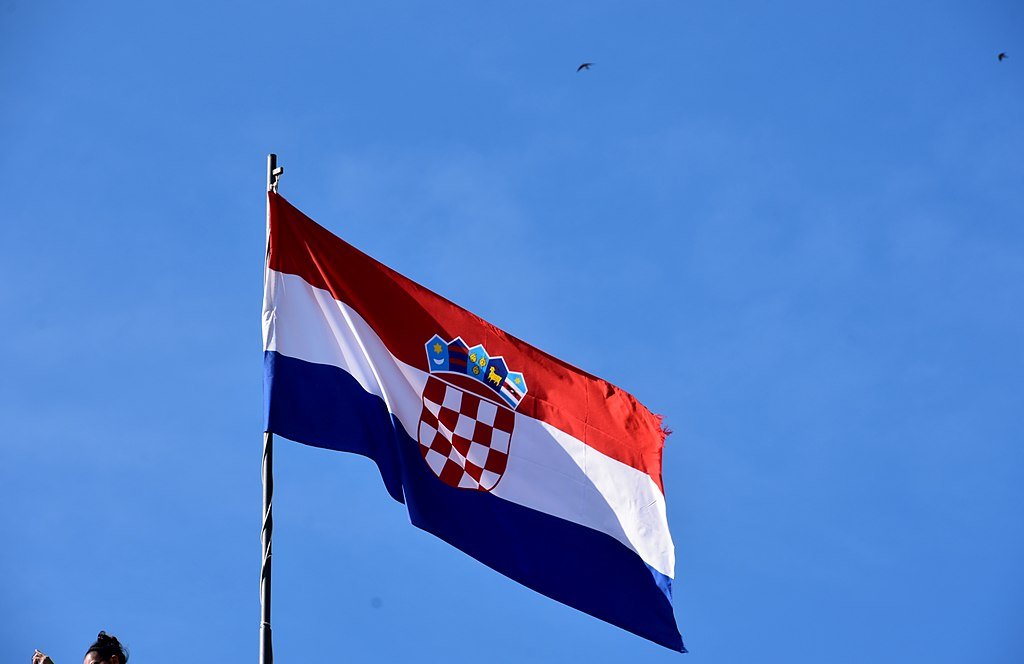
INTRODUCTION
Civil society organisations, analysts and the Bosniak community in Croatia have condemned the statements made by the former commander of the Croatian Defence Council during the Bosnian War, Dario Kordić, who was convicted of war crimes against Bosniak civilians by the Hague Tribunal. In a video published in June 2023, he claimed that every moment of captivity and war was “worth it” and that he would “do it all again”, which has sparked outrage. Critics argue that the continued glorification of war criminals in the region hinders reconciliation and prevents a genuine understanding of past and present conflicts.
In Croatia, hate speech is still present in the public space, most often in the form of comments on online portals and social networks, as well as in the form of hateful graffiti, fan chants and even job advertisements, and the targets are mostly LGBTIQ people, refugees, Serbs and Roma. In this context, the lack of an adequate and comprehensive response to the presence of hate speech in public spaces, as well as prevention measures, is worrying.
FREEDOM OF PEACEFUL ASSEMBLY
The Union of State and Civil Service Employees in Croatia, which started a strike in the judiciary on 5th June, continues to demand an immediate salary increase of EUR 400, as average salaries are currently EUR 600. The government's decision to withhold salaries for the strike days after rejecting their proposal for a salary increase has not deterred the strikers. They argue that their salaries lag far behind those of other public sector workers and are demanding a fair salary adjustment to prevent their situation from deteriorating further. However, the government claims that salaries in the judiciary have already been increased several times since 2019.
Following the announcement of the government’s decision to withhold strikers’ salaries, around 200 strikers immediately walked out of their workplaces on 13th July and gathered in front of the government headquarters, where they expressed their discontent with jeers and whistles. The media reported a heavy presence of riot police at the protest, which is rarely used in such cases. The Croatian opposition condemned the use of riot police against the peaceful demonstrators, who were mainly women.
In Split, protests against air pollution in the city continued in June, organised by the environmental initiative “Za čisti zaljev”, under the slogan “Stop the Poisoning from the North Harbour.”
FREEDOM OF EXPRESSION
In July, members of the Croatian Journalists' Association (HND) expressed concern about the government's position on the EU Anti-SLAPP Directive, which aims to combat strategic lawsuits against public participation (SLAPP). They believe that the government's position is watered down and insufficient to protect journalists and freedom of speech. The president of the association said that Croatia is the worst EU member state in terms of SLAPPs, with 945 active lawsuits, and accused the government of not taking concrete measures to address the problem.
HND sent an open letter to Croatian Prime Minister Andrej Plenkovic after he announced the new media law in Split on 10th June. They noted that there had been no formal response to their proposals for a new law to protect professional journalism, which they had submitted at the end of 2021, although the adoption of the law had been announced. The letter stressed that journalists themselves should take care of professional journalism, while the government should take care of depoliticising the Electronic Media Council and deal with the increase in vexatious lawsuits in the country.
On 20th June, a coalition of 60 civil society and journalism organisations in the EU, including Croatian corruption watchdog GONG, expressed concern about the latest draft of the European Media Freedom Act (EMFA), pointing to potential threats to media freedom and journalists' rights. They criticise that the draft allows for exceptions on the basis of "national security"," which could allow the use of spy software against journalists and sources. Furthermore, the extended list of offences justifying surveillance raises concerns about privacy and freedom of expression. The coalition called on the EU Council to remove the "national security" exception, limit the scope of the offences and improve legal protection for journalists in the EMFA.
The same day, the Croatian Journalists' Association (HND) reacted to the “arbitrary” decision of the Croatian Financial Services Authority (HANFA) to exclude journalist Valentina Wiesner from the conference “Consumer Protection in Insurance and Pension Savings - EU Strategy and Croatian Practise.” In the letter, HND Chairman Hrvoje Zovko points out that it is unacceptable for a public institution, the Financial Institutions Regulatory Authority, to arbitrarily exclude a journalist who follows the sector, and that this can be seen as nothing more than an attempt at censorship.